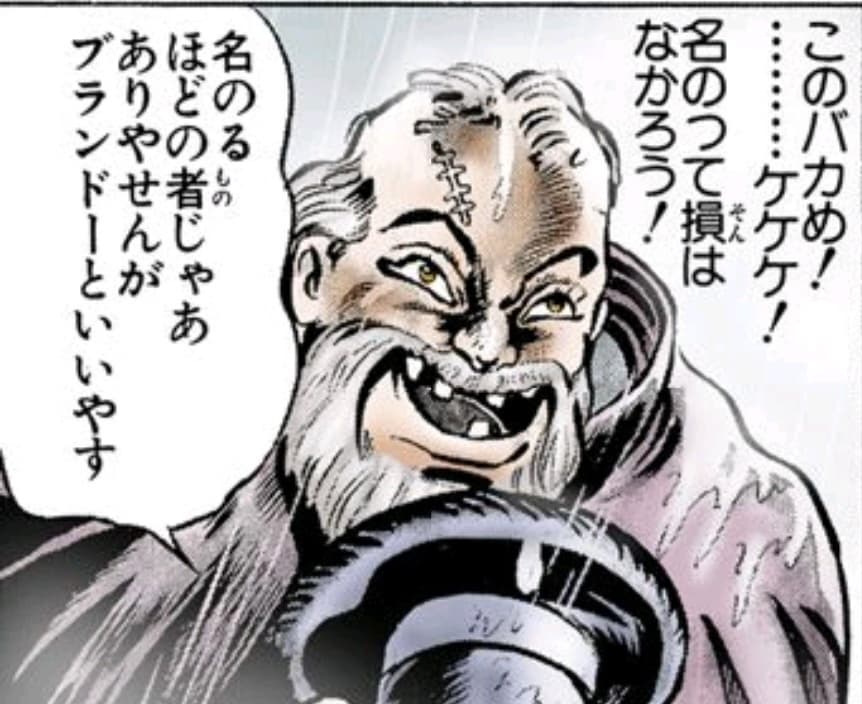I’m guessing なかろう is a weird way to say ないだろう, and I’m not sure if といいやす is supposed to be a really weird です or 言いやすい. I’d like to know what theses two words mean, and also what dialect (or whatever) is being used for that. Am I correct in assuming that right block of text says something like “I guess there’s no harm in telling him my name”?
日本語でのコメント失礼します 
合っています!お年寄りの男性がよく使っているイメージがあります。
「です」の方の意味です。「(私の名前は)ブランドーと言います。」の変わった言い方だと思います。
これは、まさにその推測の通りの意味です!
はる先生、なんて有用! 「なかろう」とか「といいやす」とかはどの方言ですか?「じゃ」とか「とる」とかように年寄りらしい台詞ですか?苦手な日本語ですみません!
Hey there! なかろう is just a really old way of saying ないだろう and is not a dialect. As @Haruna has mentioned なかろう is usually used by old people like how じゃ is used. とる is used by old people too, but it is also a dialect commonly used in the Tokai region. Since I am from that region, I use 〜とる quite often(even though I am not a 年寄り)! However 〜やす is an dialect from Osaka!
Thank you! I completely understand なかろう now. Could you tell me what といいやす is in standard Japanese though?
といいやす would be といいます in standard Japanese!
Pardon the clarification, but is that to say that ます can be やす for any verb?
I am not 100% sure as 大阪弁 is not my dialect, but it probably can be used for any verb to replace ます. According to this it could also apparently replace ませ andくださいませ.

